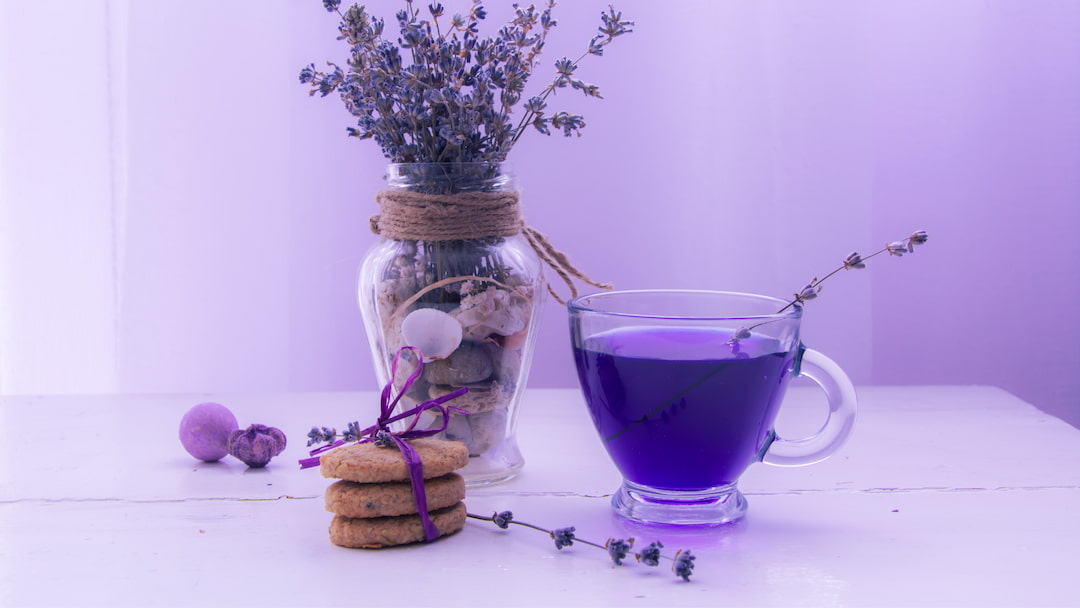Sleep is vital for the body. It’s an essential function where your body unwinds and recharges. Proper sleep of no less than 7 hours is needed by your body to repair itself, recharge and regenerate for the next day.
Getting adequate sleep is vital for good health as sleep also strengthens the immune system and keeps your body safe from diseases such as heart disease and obesity.
However, many of us suffer from insomnia or sleeplessness. It takes some tossing and turning before we get into that restful state and finally drift off to sleep.
Thankfully for insomniacs all over the world, nature has solutions for sleeplessness that don’t involve taking pills or putting your health on the line. Here are some safe and effective herbal teas that are known for their sleep-inducing effects.

Valerian Root Tea
Valerian tea is made from the roots and underground stem of the Valeriana Jatamansi plant that is mostly found in Asia and Europe.
The roots of this plant have long been used in traditional medicine for over 2,000 years due to its calming properties that help soothe the nervous system and mind. Because of this, apart from being a well-known sleep tea, valerian tea has also been used to treat headaches and anxiety.
The mild sedative effects of valerian root are due to the presence of a neurotransmitter called GABA. GABA enables the body and mind to relax and fall asleep, and to sleep soundly throughout the night.
Find out the benefits of Valerian Tea?

Chamomile Tea
Chamomile tea is made from the flowers of the Matricaria chamomilla L. plant. A popular folk remedy, the sleep enchancing properties of chamomile are due to an antioxidant known as apigenin. Apigenin relaxes the brain and reduces stress and anxiety which help promotes sleep.

Lavender Tea
Lavender tea comes from the purple buds of the Lavandula angustifolia plant. Lavender is well-known for its calming properties and its extract is popularly used in aromatherapy in various forms such as oils, candles, bath salts, and more.
Lavender tea is a common stress reliever and apart from inducing sleep, it has shown to improve sleep quality. This is mainly due to its analgesic or pain-relieving properties and it contains the GABA neurotransmitter which fights restlessness.

Passionflower Tea
Passionflower tea is derived from the flowers of the Passiflora plant. Passionflower tea has mild sedative properties that help with anxiety and promote relaxation. It has also been used to treat hot flashes in menopausal women and it also works as a pain reliever. Passionflower tea has also been shown to relax muscle spasms.
The calming effects of passionflower tea are due to its property of increasing the levels of gamma-aminobutyric aSScid (GABA) a chemical in the brain which regulates mood. Passionflower tea helps with falling asleep more quickly and also improves the quality of sleep.
The Takeaway
Sleep tea, bed tea, good evening tea, whatever you like to call it, drinking tea at night can help promote a restful sleep as long as what you’re drinking is herbal sleep tea.
Apart from having properties that help induce sleep and promote relaxation, drinking herbal sleep tea before bedtime can calm your body and the very act of sipping a warm beverage before bedtime offers a soothing sensation.
It is advisable that you steep your herbal tea in hot water for at least five minutes before drinking to extract the full benefits. Steep longer for a stronger tea and more potential benefits. If you do not like the taste of plain herbal tea, you can add some honey to sweeten it and make it more palatable.
Care should also be taken to ensure that certain sleep teas such as Valerian tea are not consumed during pregnancy or while you’re on certain medications as it can have negative effects. So make sure you do some research or consult a doctor prior to consuming.
Does herbal tea help you sleep?
Yes, herbal teas with sleep inducing or sleep enhancing properties help your body wind down. These sleep teas such as valerian tea, chamomile tea, lavender tea, and passionflower tea act as sleep aids by relaxing the muscles in the body and soothing the nervous system which help prepare your body for sleep.
What is the strongest sleep tea?
Chamomile tea is popularly regarded as one of the most effective sleep teas. There are different varieties of chamomile that range from mild to strong in terms of their sleep-inducing effects. In the United States and Europe, valerian tea is popularly used as a sleep aid and it has found to be the most popular variety of sleep tea. Each of these sleep teas work differently for everyone so it’s best to try them out for yourself and determine which is most effective or strongest.
What tea is a natural laxative?
Ginger tea is known to be beneficial for the digestive system hence it can help the digestive tract after a heavy meal.
The caffeine in green tea is known to have a mild laxative effect that helps stimulate the bowels and counteract constipation.
Is it okay to drink sleepytime tea every night?
Yes, as long as you keep it to a maximum of two cups per night, drinking sleep tea every night is perfectly fine. In fact, the effects of herbal sleep teas work better when taken consistently over a period of time.
However, make sure that you’re not pregnant or on medication as sleep teas can negatively interact with your body under these conditions.
Can you drink hibiscus tea before bed?
Yes, hibiscus tea or Roselle tea can be taken before bed. However, hibiscus tea does not have any sleep-inducing properties, so it will not be effective as a sleep tea.


